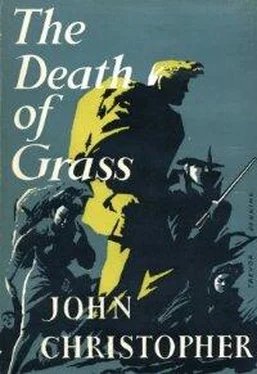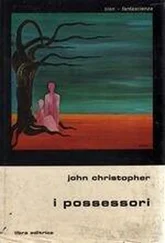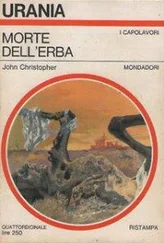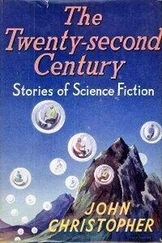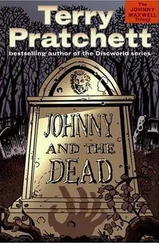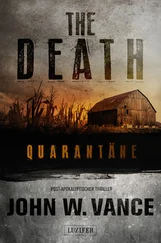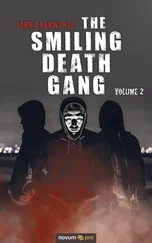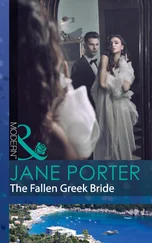They watched until the group was nearly out of sight, and then continued their journey.
They skirted to the south of Aysgarth, which showed signs of defensive array that had now become familiar. They rested, in the afternoon’s heat, within sight of the town. The valley, which had been so green in the old days, now showed predominantly black against the browner hills beyond. The stone walls wound their way up the hillsides, marking boundaries grown meaningless. Once John thought he saw sheep on the hillside, and jumped to his feet to make sure. But they were only white boulders. There could be no sheep here now. The Chung-Li virus had done its work with all-embracing thoroughness.
Mary was sitting with Olivia and the girl Jane. The boys, for once too tired to skylark {114} 114 skylark: play about
, were resting together and discussing, so far as John could judge from the scraps of conversation he picked up, motor speedboats. Ann sat by herself, under a tree. He went over and sat down beside her.
“Are you feeling any better?” he asked her.
“I’m all right.”
She looked tired, and he wondered how much sleep she had managed to get the night before. He said:
“Only two more days of this, and then…”
She caught his words up. “And then everything’s fine again, and we can forget all that’s happened, and start life all over from the beginning. Well?”
“No. I don’t suppose we can. Does it matter? But we can live what passes for a decent life again, and watch the children grow up into human beings instead of savages. That’s worth doing a lot for.”
“And you’re doing it, aren’t you? The world on your shoulders.”
He said softly: “We’ve been very lucky so far. It may not seem like that, but it’s true. Lucky in getting away from London, and lucky in getting as far north as this before we ran into serious trouble. The reason this place looks deserted is because the locals have retired behind their defences, and the mobs haven’t arrived. But I shouldn’t think we’re more than a day’s march ahead of the mobs—we may be less. And when they come…”
He stared at the tumbling waters of the Ure. It was a sunlit summer scene, strange only in the absence of so much of the familiar green. He didn’t really believe the implications of his own words, and yet he knew they were true.
“We shall be at peace in Blind Gill,” Ann said wearily.
“I wouldn’t mind being there now,” John said.”
“I’m tired,” Ann said. “I don’t want to talk—about that or anything else. Let me be, John.”
He looked down at her for a moment, and then went away. As he did so, he saw that, from under the next tree, Millicent was watching them. She caught his eye, and smiled.
The valley narrowed towards Hawes, and the hills on either side rose more steeply; the stone walls no longer reached up to their summits. Hawes did not appear to be defended, but they avoided it all the same, going round on the higher ground to the south and fording the tributaries of the Ure, fortunately shallow at this time of year.
They made camp for the night in the mouth of Widdale Gill, securing themselves in the angle between the railway line and the river. Fairly near them they found a field that had been planted with potatoes, and dug up a good supply. Olivia made a stew of these and the salt meat they carried; Jane helped her and Millicent gave some half-hearted assistance.
The sun had set behind the Pennines, but it was still quite light; John looked at his watch and saw that it wasn’t yet eight o’clock. Of course, that was British Summer Time {115} 115 British Summer Time: one hour in advance of ordinary time to facilitate the use of daylight
, not Greenwich {116} 116 Greenwich Mean Time: standard time in Great Britain
. He smiled at the thought of that delicate and ridiculous distinction.
They had done well, and the boys were not too obviously fatigued. Normally he might have taken them further before halting, but it would be stupid to begin the climb up into Mossdale in such circumstances. Instead, they could make an early start the following morning. He watched the preparations for supper with a contented eye. Pirrie was on guard beside the railway line.
The boys came over to him together. It was Davey who spoke; he used a tone of deference quite unlike his old man-to-man approach.
“Daddy,” he said, “can we stand guard tonight as well?”
John surveyed them: the alert figure of his son, Spooks’s gangling lankiness, Steve’s rather square shortness. They were still just schoolboys, out on a more puzzling and exciting lark than usual.
He shook his head. “Thanks very much for the offer, but we can manage.”
Davey said: “But we’ve been working it out. It doesn’t matter that we can’t shoot properly as long as we can keep awake and make a noise if we see anyone. We can do that.”
John said: “The best thing you three can do is not to stay awake talking after supper. Get to sleep as quickly as possible. We’re up early in the morning, and we’ve got a stiff climb and a long day to face.”
He had spoken lightly enough, and in the old days Davey would have argued strenuously on the point. Now he only glanced at the other two boys in resignation, and they went off together to look at the river.
They all had supper together, Pirrie having come down from the line with a report of emptiness as far as the eye could see. Afterwards, John appointed the hours of sentry duty for the night.
Roger said: “You’re not counting Jane in?”
He thought Roger was joking at first, and laughed. Then he saw, to his astonishment, that it had been a serious question.
“No,” he said. “Not tonight.”
The girl was sitting close to Olivia; she had not strayed far from her all day. John had heard them talking together during the afternoon, and had heard Jane laughing once. She glanced up at the two men, her fresh, somewhat fat-cheeked face open and inquiring.
“You wouldn’t murder us in our beds, would you, Jane?” Roger asked her.
She shook her head solemnly.
John said to her: “Well, it’s best not to give you the chance, isn’t it?”
She turned away, but it was in embarrassment, he saw, not hatred.
He said: “It’s Ann’s first watch. The rest of us had better get down and get to sleep. You boys can put the fire out—tread out all the embers.”
Roger woke him, and handed him the shot-gun which the sentry kept He got to his feet, feeling stiff, and rubbed his legs with his hands. The moon was up; its light gleamed on the nearby river, and threw shadows from the small group of huddled figures.
“Seasonably warm,” Roger said, “thank God.”
“Anything to report?”
“What would there be, but ghosts?”
“Any ghosts, then?”
“A brief trace of one apparition—the corniest of them all.” John looked at him. “The ghost train. I thought I heard it hooting in the distance, and for about ten minutes afterwards I could have sworn I heard its distant roar.”
“Could be a train,” John said. “If there are any capable of being manned, and anyone capable of manning one, they might try a night journey. But I think it’s a bit unlikely, taken all round.”
“I prefer to think of it as a ghost train. Heavily laden with the substantial ghosts of Dalesmen {117} 117 Dalesmen: inhabitants of the Yorkshire dales
going to market, or trucks of ghostly coal or insubstantial metal ingots, crossing the Pennines. I’ve been thinking—how long do you think railway lines will be recognizable as railway lines? Twenty years—thirty? And how long will people remember that there were such things, once upon a time? Shall we tell fairy stories to our great-grandchildren about the metal monsters that ate coal and breathed out smoke?”
Читать дальше
